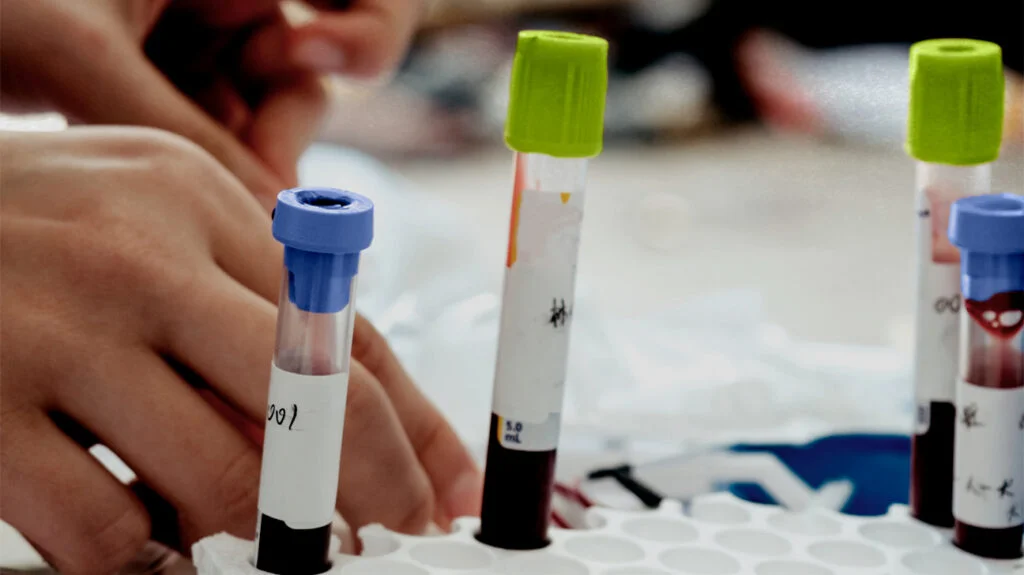A blood test for detecting Alzheimer’s advances

A blood test for Alzheimer’s disease is advancing, and so far, it is believed that it could be 90% effective.
The Alzheimer’s blood test, a form of cognitive screening, has a 90% accuracy rate in determining whether memory loss is due to Alzheimer’s disease.
The new Alzheimer’s blood test study has tests that appear to be very effective.
Unlike neurologists and other memory specialists, who correctly diagnosed Alzheimer’s in 73% of their cases, primary care physicians were less successful, with an accuracy rate of only 61%, according to the study.
Alzheimer’s patient says intensive lifestyle changes reversed her condition
One part of the blood test for detecting Alzheimer’s progresses, called plasma phosphorylated tau 217, or p-tau217, is one of several blood biomarkers that scientists are evaluating for use in diagnosing mild cognitive impairment and early-stage Alzheimer’s disease.
The test measures tau 217 protein, which is an excellent indicator of amyloid pathology, says study co-author Sebastian Palmqvist, Ph.D., associate professor and senior consultant neurologist at Lund University, Sweden.
“Increases in blood p tau217 concentrations are quite profound in Alzheimer’s disease. In the dementia phase of the disease, levels are more than 8 times higher than in the elderly without Alzheimer’s,” Palmqvist wrote in an e-mail.
According to research published in January, a similar p-tau217 test is up to 96% accurate in identifying elevated beta-amyloid levels and up to 97% accurate in identifying tau.
The presence of beta-amyloid and tau tangles in the brain are hallmarks of Alzheimer’s disease.
READ HERE: Why is the Republican symbol an elephant?

A blood test for detecting Alzheimer’s advances
In the new study, the p-tau-217 test was combined with another Alzheimer’s blood biomarker called the 42/40 amyloid ratio, which measures two types of amyloid proteins, another biomarker of the disease.
The combination of the amyloid and tau tests, called the amyloid probability score, was the most predictive.
Despite this, the study, published Sunday in the journal JAMA Neurology, followed 1,213 people with an average age of 74 who were undergoing cognitive evaluations in both primary care and specialty clinics in Sweden.
Each person’s blood was tested with p-tau217, and the results were combined with blood measurements of beta-amyloid 40/42 to develop a final score.
However, if accurate blood tests are used, waiting times could be reduced to between six and 13 months, according to the study, as many fewer people would need to see a specialist or undergo additional testing.






